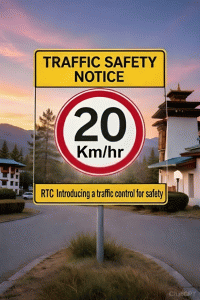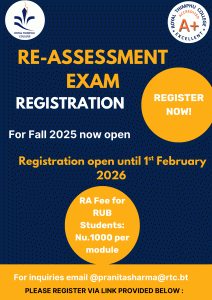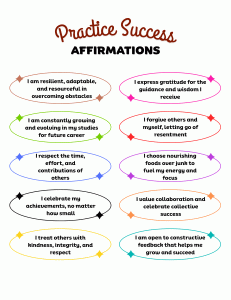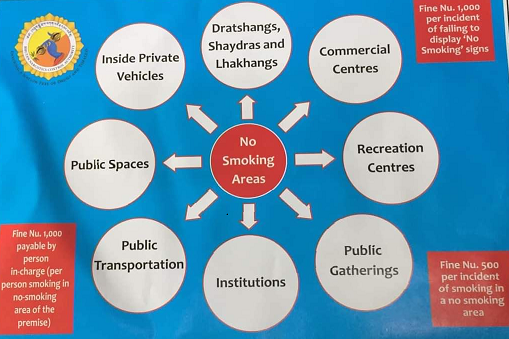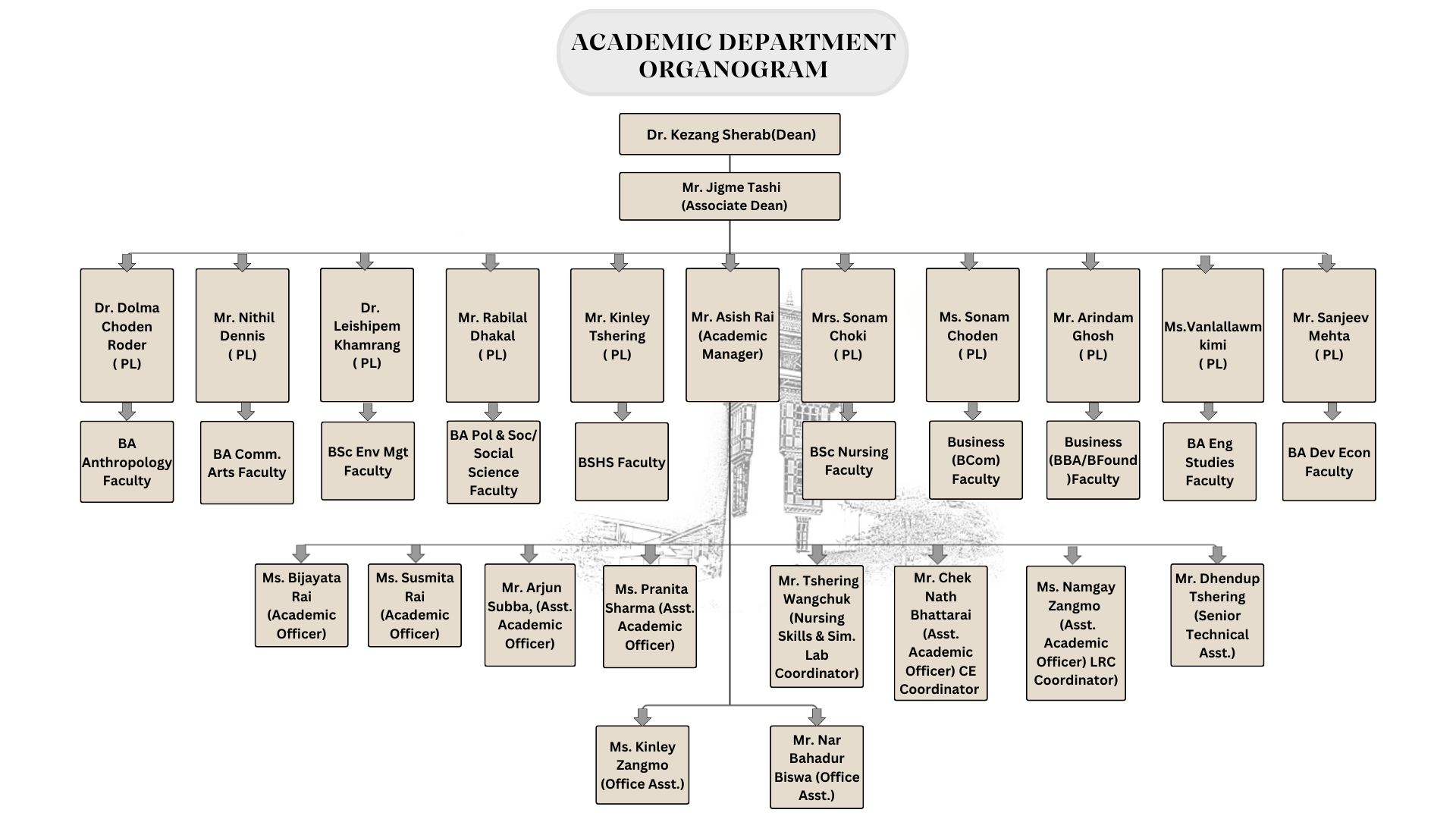In 2024, the RTC Cheer Team was introduced to complement RTC FC, adding energy and enthusiasm to games and events. The cheer team focuses on promoting sports spirit, unity, and motivation during matches and other college activities.
In our fast-paced modern world, seeking counselling services cannot be overlooked. Mental health matters just as much as physical wellbeing. We are here to serve you as a guiding light and help you navigate the challenges, uncertainties and stressors that often accompany your journey. We offer a safe and confidential space where you can express your thoughts, emotions and concerns without judgment that would lead to improved mental and emotional well-being.
In addition to providing face to face counselling services, we are pleased to announce the establishment of online counselling services. Now the counselling services have become more accessible, comfortable and confidential that is tailored to your preferences. We are taking a significant step towards nurturing our mental health and achieving a balanced, fulfilling life.
Note: Should you feel the need to avail Online Counselling Appointment, you can tab the individual links of counsellors to fix an appointment.
Counsellors:
Mona Chapagai Dawa Tashi
https://calendly.com/monachapagai https://calendly.com/dawatashi
17318630 17923505
The Power of Emotional Regulation: A Path to Healthier Lives

Dr. Dawn-Elise Snipes
Clinical Psychotherapist. Tennessee,
Florida
PhD in Counseling and education
https://youtu.be/QjczAlcJPKU
EMOTIONAL REGULATION is a crucial life skill that often goes unnoticed in our fast-paced world. It is the ability to understand, manage, and express our emotions in a healthy and constructive way. While it might sound simple, its impact on our lives is profound.
Contemplation on emotional regulation is a call to recognize the immense benefits it can bring to individuals and society as a whole. In an age where stress, anxiety, and depression are on
the rise, regulating our emotions acts as a buffer. It allows us to cope with life's challenges without becoming overwhelmed. When we can regulate our emotions, we reduce the risk of succumbing to the pressures of the modern world. It enables us to communicate effectively, empathize with others, and resolve conflicts amicably. Practicing emotional regulation pave the
way for more harmonious connections with those around us, fostering a stronger sense of community.
Individuals who can manage their emotions perform better academically. They are better equipped to handle stress, work in teams, make sound decisions, and are more focused, adaptable, and resilient in the face of challenges. Emotional regulation is an investment in our future, unlocking the potential of the next generation. It allows individuals to take control of their lives, make thoughtful decisions, and pursue their goals with determination. It liberates us from the grip of impulsive reactions and empowers us to lead more fulfilling lives.
To regulate your emotions effectively, start by practicing self-awareness. Recognize and acknowledge your emotions as they arise, without judgment to allow you to understand the source of your feelings and their impact on your behavior. Once you are aware of your emotions, implement self-regulation techniques. Deep breathing exercises, mindfulness meditation, or progressive muscle relaxation can help calm your nervous system and reduce emotional intensity. Cognitive reframing can also be practiced to challenge negative thought patterns and replace them with more rational or positive perspectives, helping you gain better control over your emotions. Remember, it takes practice, so be patient with yourself as you develop these
skills.
Consider the role of your environment and lifestyle in emotion regulation. Adequate sleep, regular exercise, a balanced diet, and stress management techniques like time management or
relaxation exercises can contribute to emotional stability. Cultivate a strong support network, confide in trusted friends or family members, and consider seeking professional help from a
therapist or counselor if you find it challenging to regulate your emotions on your own. By combining self-awareness, self-regulation techniques, and a supportive environment, you can
enhance your ability to manage and regulate your emotions effectively.
Emotional regulation contributes to a healthier, happier, and more harmonious society. It is a call to recognize the transformative power of this skill in improving mental health, strengthening
relationships, enhancing education, and boosting productivity. Let us champion emotional regulation as a fundamental skill that can lead us to a brighter and more resilient future.
LRC - Home | Detailed Work Plan | Detailed Schedule | LRC Coordinator Details
With academic assignments, the LRC will assist students in:
- Developing academic writing and reading skills
- Using correct APA citation and referencing
- Understanding assignment and exam questions
- Coping with academic stress,managing workload and time management
- Using AI tools ethically and responsibly in academic work
The completion of assignments remains the responsibility of students. Instead, the centre serves as a supplemental resource, providing resources and guidance as well as a safe space where one should not hesitate to make mistakes or ask questions. If utilised correctly, the LRC can ensure that students develop their learning skills and achieve academic success.
The Learning Resource Center services are available through:
- Scheduled Sessions: Classes with fixed timings and topics, made available after being referenced by a module tutor
- Walk-In Sessions: One-on-one sessions with personalised tutoring and feedback, booked on a first-come-first basis
- VLE Sessions: Online platform with additional resources to supplement lessons.
For more information, please contact Ms Namgay Zam at
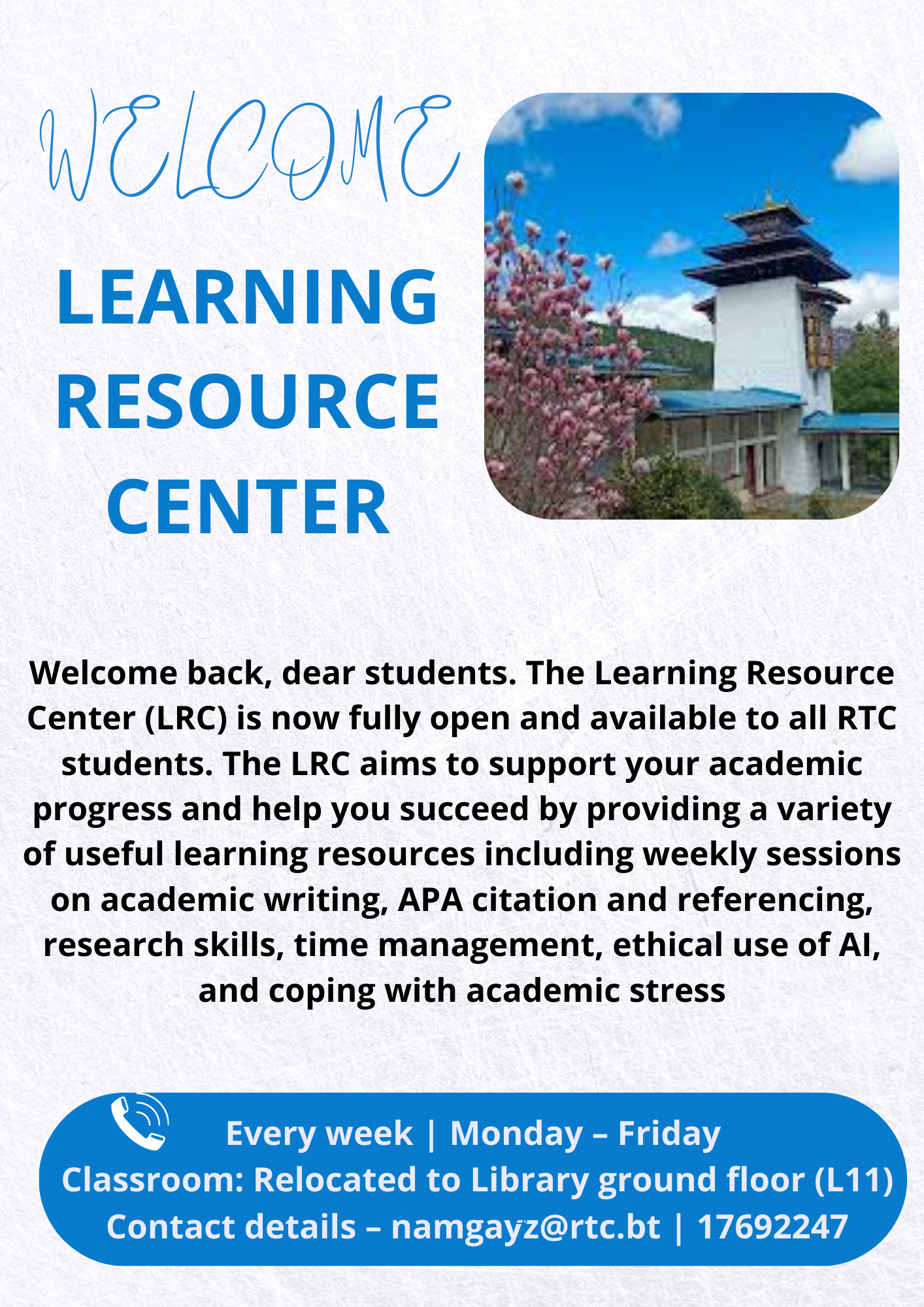
There are handbooks for faculties, staff, regular students, nursing students and CE students for references.
Regular student handbook 2025-2026
Nursing student handbook 2025-2026
Breakfast
- Fried rice and Bread/Puri
- Egg
- Tea/Coffee
- Cornflakes
- Jam
- Milk
- Butter
Lunch
- Steamed Rice and Pasta/Noodles/Chowmin
- Non-veg curry (usually pork, beef, fish, chicken, egg)
- Vegetable curry
- Dhal/Jaju/Soup
- sweets/fruits
- Salad/Pickle
Dinner
- Steamed Rice and Pasta/Noodles/Chowmin
- Non-veg curry (usually pork, beef, fish, chicken, egg)
- Vegetable curry
- Dhal/Jaju/Soup
- Sweets/fruits
- Salad/Pickle
This page provides you with information about our department (IT) , online help/assistance on some common ICT issues and anyother IT related news/activity that we feel is interesting and useful to share.
About Us
The RTC Information and Technology Department takes care of all the IT Services in the campus. Our Department is headed by the IT Manager and we have several IT Officers.
We are:
- Namgay Tshering - IT Manager
- Tsheyang Tshomo - Senior System Administrator
- Mamick Pradhan - IT Officer
- Sonam - IT Officer
- Rohan Biswa - Asst. IT Officer
- D.B Ghising - Senior IT Assistant
- Karna Bahadur Tamang - IT Technician
We ensure the maintenance, up-gradation and the smooth functioning of IT Systems and applications in the campus.
The various services that come under the scope of our Department are:
1. Workstations
2. Servers
3. Network and Wi-Fi
4. Help Desk
1. Workstations:
There are 4 IT Labs in the campus, 3 of which are meant for Teaching and 1 for other Learning purpose for the Students. In these Labs there are a total of about 117 workstations with all the necessary software and applications installed. Internet is available 24*7 in all of the computers. The 2 non teaching labs open from 9am till 8pm and the department has hired Lab Assistants to look after these Labs in the evening after regular classes. The other 3 Labs are strictly meant for teaching purposes hence it opens only for IT class.
All the Staff and Faculty are provided with a workstation each at their work desk with all the necessary applications installed. Each workstation is provided with internet connectivity and is connected to a shared printer.
2. Servers:
There are many Servers serving different purposes. The important ones are:
- Mail server : The College has its own mail and directory server. All the Staff and students are provided with a network disk space and an rtc.bt domain mail service.
- Web Site : RTC has 2 websites www.rtc.bt which is the official website and my.rtc.bt which is the intranet site of the campus. The webmaster manages these sites.
- Database Server : RTC also has its own Information Management System. Any official data like Staff/Student information or other Academic data’s are stored and managed in this system.
3. Network and Wi-Fi:
The entire campus is connected with LAN connectivity. A 24 Mbps internet service is provided 24 * 7. One of the highlights of the Network service is the Wi-Fi connectivity that is setup throughout the campus. All the hostels, staff residence and other popular hangout areas in the campus are covered by Wi-Fi.
4. Help Desk
Our Department has a front Help Desk where any RTC Family member can bring their personal IT device for repair. A staff will always be available at the desk. Only basic troubleshooting and repair will be offered. Hardware repair will not be provided.
Our Department office is located on the Top floor of the Academic Block (A). Our office extension is 109 / 144 and the IT managers extension is 150. Our Office opens from 8:30 am till 5:30 pm weekdays and from 8:30 am till 12:45 pm on Saturdays. We are closed on Sundays and any other RTC Holidays.
For off office hour IT support, there will be IT Lab assitants situated in the library. The IT Lab Assitants will provide basic IT related support.
We hope you have a pleasant ‘ICT facility’ experience @ RTC.
Bachelor of Business Administration (Cohorts 2017- 2024)
Bachelor of Business Administration (Cohorts 2025- present)
Bachelor of Business Administration - CE (Cohorts 2017 - present)
Bachelor of Commerce (Cohorts 2017 - 2024)
Bachelor of Commerce (Cohorts 2025 - present)
Bachelor of Commerce - CE (Cohorts 2017 - present)
Bachelor of Science in Environmental Management (Cohorts 2021 - present)
Bachelor of Science in Environmental Management (Cohorts 2015 - 2020)
Bachelor of Arts in Development Economics (Cohorts 2022 - present)
Bachelor of Arts in Development Economics (Cohorts 2016 - 2021)
Bachelor of Arts in English Studies (Cohorts 2016 - 2021)
Bachelor of Arts in English Studies (Cohorts 2022 - present)
Bachelor of Arts in English Studies - CE (Cohorts 2016 - 2021)
Bachelor of Arts in Political Science and Sociology (Cohorts 2017 - present)
Bachelor of Arts in Anthropology (Cohorts 2018 - 2022)
Bachelor of Arts in Mass Communication (Cohorts 2018 - present)
Bachelor of Sports and Health Science (Cohorts 2022 - present)
Bachelor of Science in Nursing and Midwifery (Cohorts 2018 - present)
Bachelor of Arts in Anthropology (Cohorts 2023 - present)
Bachelor of Arts in Communication Arts & Creative Media (Cohort 2023 - present)
Bachelor of Arts in Social Sciences (Cohort 2024 - present)
LRC - Home | Detailed Work Plan | Schedule & Classroom nos | Faculty Details
RTC’s Learning Resource Centre (LRC) supports students at all stages of their degree program
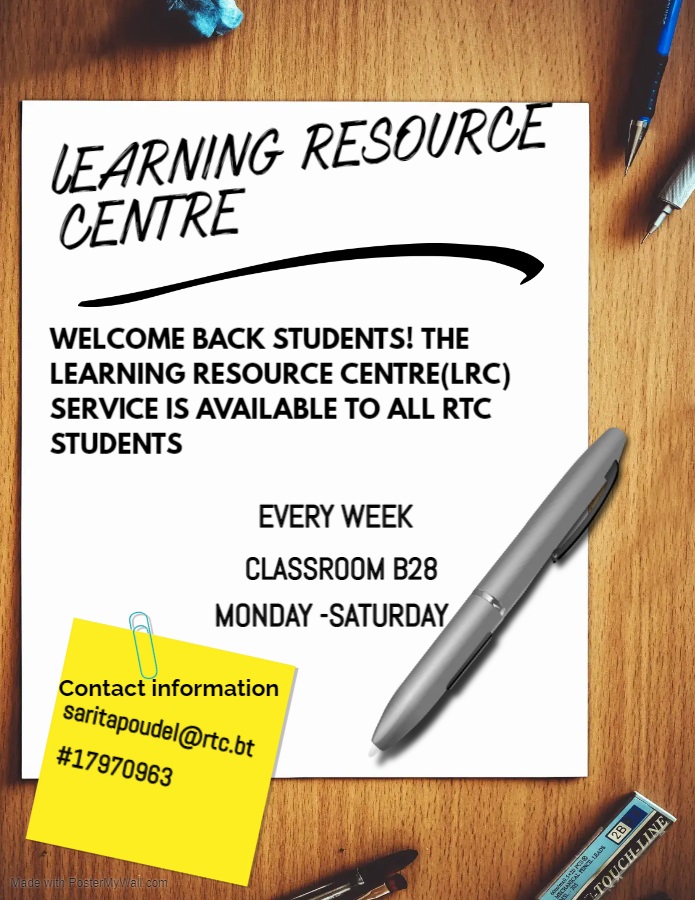
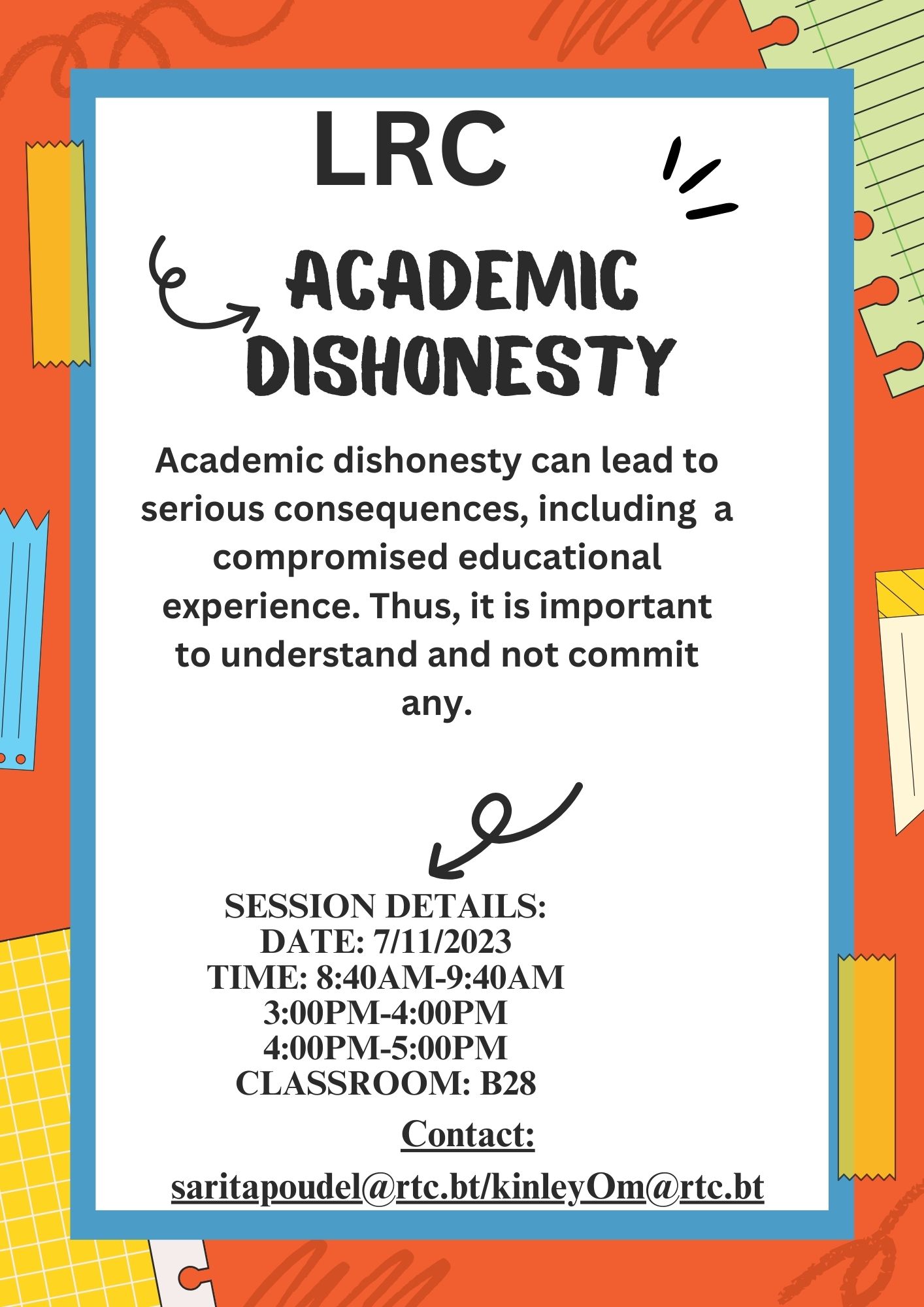
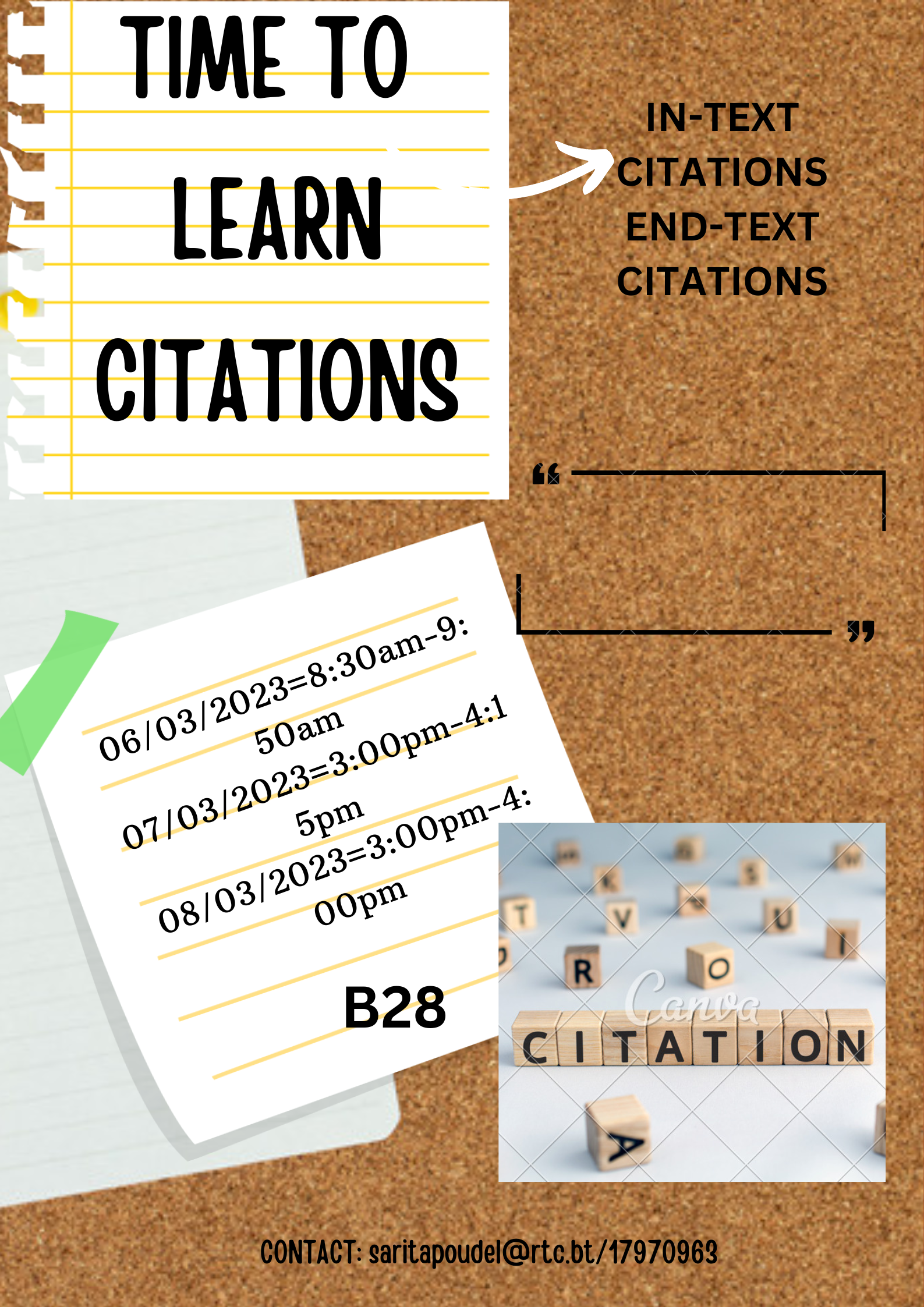
Academic Students Code of Conduct
Academic honesty is a core element of integrity that is essential to effective learning and to a well-functioning academic community based on principles of trust, civility, respect for knowledge, and a search for true excellence. Similarly, active participation in the academic life of the college not only helps students to achieve excellence themselves. It shows respect for faculty efforts and allows students to contribute to the learning of their classmates. From these observations come the fundamentals of the student academic code of conduct:
- Academic Honesty: Students will behave honestly in their academic work, as in other areas of their lives. Cheating or helping others to cheat on any aspect of course work including exams and other assessments is a serious offence. Plagiarism, the presentation of another’s ideas, writing, or other work as one’s own, is a serious kind of cheating. Thus, students unsure of how borrowing from another’s work should be properly acknowledged have the responsibility to consult with relevant faculty regarding acknowledgement procedures appropriate to their discipline. Other forms of academic dishonesty, including but not limited to attempting to a) gain unauthorized advance access to exam questions, b) forge documents, or c) bribe college employees, are also very serious offenses.
-
Class Attendance: Classroom activities are a core part of academic life from which students profit and to which students contribute, especially in an academic environment like RTC’s which stresses continuous assessment. In recognition of the importance of class attendance to individual students and to their classmates, regular classroom attendance is expected of all students, and students not meeting RTC’s attendance requirements will not be allowed to sit for exams. Students missing out on continuous assessments due to classroom absence will not be allowed to make up such assessments, unless documentary evidence of a valid reason for the absence (such as a doctor’s note) is provided. An overall attendance record of 90% in each of the modules is required to be able to sit for the semester-end examinations. Therefore, the students will be allowed to sit for the SE examination only in the module they have 90% attendance and will be debarred from other modules where they fail to achieve 90% attendance. Similarly, the progression to the next semester will be decided on the passing of 3 modules out of the total 5 modules offered in the semester including those debarred from writing because of this attendance shortage. However, students who have been given medical leave (due to hospitalization or referred medical travel), who have been given leave due to family emergencies (such as a death in the family or sickness of a child), or who are absent due to RTC sponsored activities may take final exams with 80% or higher attendance overall. Repeated late arrivals at class and/or early departures from class may be consolidated and counted as an absence since this disrupts learning and class time is lost through such behavior as it is when classes are missed completely.To get a medical leave, students must submit valid medical documents to the Dean’s office within 10 days following the last medical treatment for an illness. Medical leave is only granted in cases of hospitalization or travel outside of Thimphu for treatment as referred by a Doctor. Students are expected to use their 10% attendance buffer to deal with any other incidental sickness or injuries that may require rest but not hospitalization. To get emergency family leave, students must receive prior permission either from the Registrar’s office or the Residence Mentor (residential students only) before missing classes. To get leave for RTC-sponsored activities, the student must also get prior written permission from the Registrar, who will submit a copy of this permission to the Dean. The duration of all leaves will be decided on the basis of the nature of the situation and the evidence provided.
- Classroom Behavior - Promptness, Preparation and Attentiveness: In order not to disrupt the learning of others or to miss important material themselves, students are expected to enter each class on time. Those missing assessments or having inadequate time to complete assessments due to late arrival in class should not expect extra time to do such work. Also, as indicated above, repeated late arrival to class or early departure from it may be counted as an absence. Students are also expected to come to class prepared, having completed their assignments and bringing any needed materials, such as books, pens and notebooks. Finally, once in class students are expected to attend closely to the learning activities occurring there and to refrain from personal conversations.
- Electronic Devices: To provide an environment conducive to focus on academic activities, students should turn off all electronic devices, such as cell phones, when they enter the library, IT labs, their classrooms, and events such as college assemblies. These devices should remain off until students leave these places.
Students have the opportunity to join clubs reflecting their interests in areas such as trekking/nature and community service, as well as in literary and other cultural and academic activities. They also have the exciting opportunity to start new clubs that will enrich campus life. RTC encourages such initiatives and facilitates the active functioning of a variety of student clubs through providing the Student Government with funds that can be allocated to support club activities.
Clubs
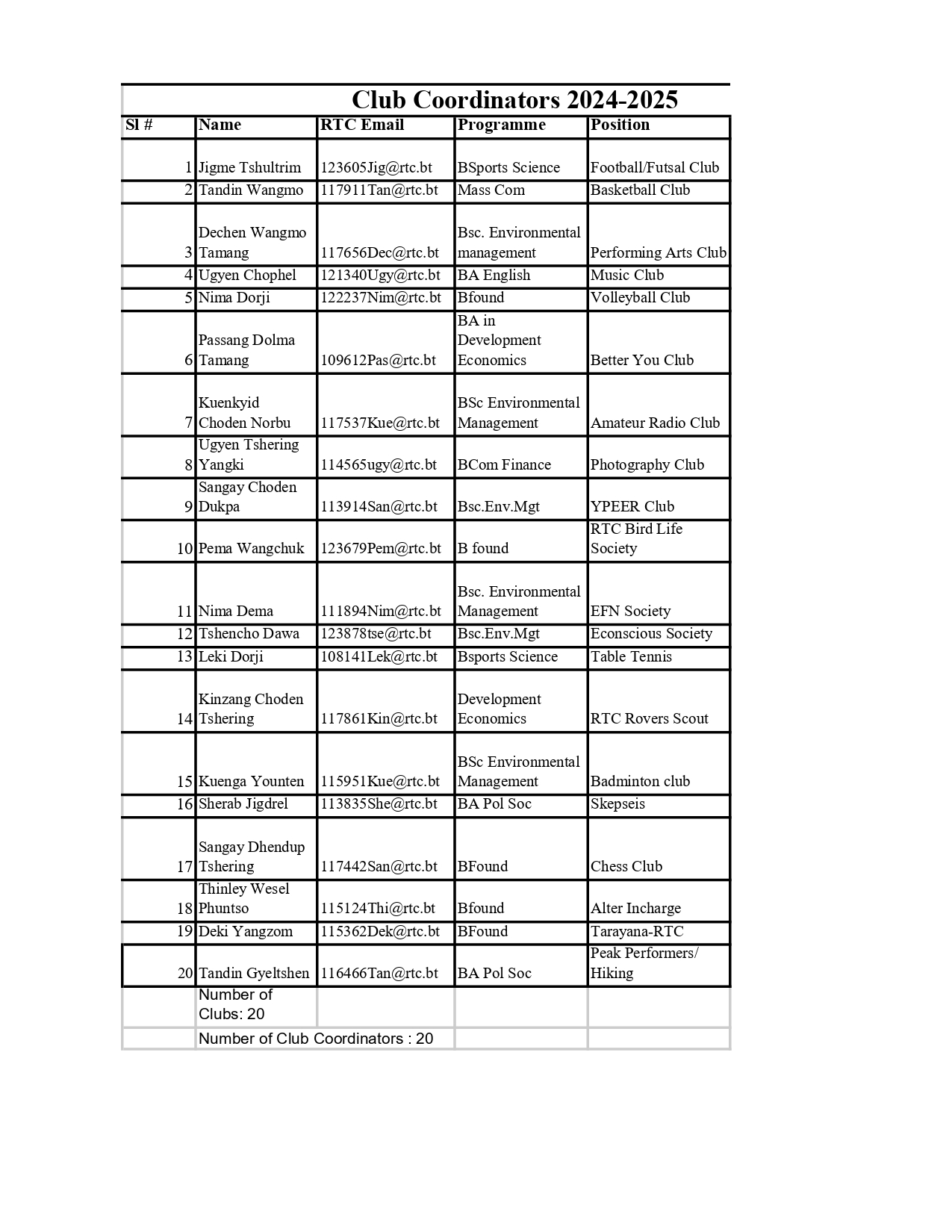
RTC is justifiably proud of its outdoor sports and games facilities. The sports facilities on campus include a full-length football field, a fully equipped fitness center, table tennis, volley ball, two outdoor basketball courts and a Multi- Purpose Hall which houses one indoor Basketball court and badminton courts. In the next one to two years, additional facilities such as a tennis court will be added. All required sports equipment for group/team games are available. However, the student will have to bring equipment for individual games.
Click Here to view the Football fixture for Spring 2025
- Health Facility
The college has a trained health assistant available during regular hours and for emergencies.
Name : Deepangali Deewan, Sr. Health Officer.
Contact number:17581088
- Counselling Services
Your Well-Being Matters!
At RTC, your mental and emotional well-being is our top priority. Our two full-time counsellors are here to provide a safe, inclusive, and confidential space where you can share your concerns and find the support you need.
We understand the unique challenges of college life. Whether you are managing academic pressures, navigating personal challenges, or simply need someone to talk to, we are here to help you thrive.
Our services include:
- Tailored One-on-One Counselling
- Group Counseling
- Campus-Wide Wellness Initiatives
- Natured-Based Therapy
- Awareness Events to Support Your Growth
By fostering a supportive and inclusive campus environment, we are committed to ensuring that every voice feels heard, valued, and empowered.
Feel free to reach out to us anytime via email, phone, or online appointments Calendly Link as below:
Mona Chapagai Dawa Tashi
https://calendly.com/monachapagai https://calendly.com/dawatashi
17318630 17923505
You are never alone - help is always available!
- Students’ Clubs
Students at Royal Thimphu College (RTC) have the opportunity to join clubs that reflect their interests, including trekking, nature, community service, literature, culture, and various academic pursuits.
Campus Residence Halls are designed to create a secure and pleasant living and learning community. Residence life is an integral part of the residential experience where intellectual stimulation continues and students study either alone or in groups. All first year students who wish to live on campus will be provided with housing.
RTC currently has eight modern residence halls available to daytime students with double-, triple- and quadruple-occupancy rooms, laundry facilities, and a common room with a TV. RTC provides beds, desks, chairs, curtains, and closet space. In addition, some students will be accommodated in larger apartments with similar furnishings. Rooms will house 2, 3 or 4 students. Roommates are assigned based on common interests and living habits. Residence Mentors appointed from among the staff facilitate student life and are available for consultation with the students on a variety of issues. They are assisted by 2 student Resident Assistants in each residence.
The college’s Student Government, elected by students, represents their voices, liaises with college management, and initiates student-centred activities. Supported by a substantial budget, they prioritise projects that benefit the broader student community. All members have key responsibilities, which include:
The Purpose of the Student Government
The purpose of the Student Government is to enrich students’ academic, social and personal experiences at RTC by:
- Serving as the liaison between students and RTC’s administration, faculty, and staff by bringing students’ suggestions and concerns to the attention of appropriate RTC authorities,
- Implementing initiatives that will foster students’ academic, social and personal development,
- Building school spirit and an inclusive close knit RTC community,
- Providing opportunities for students to build their leadership skills and to gain experience in democracy,
- Allocating Student Assembly Fund and the Student Activities Fund funds to activities that will enrich students’ experiences and build school spirit
Student Government Organogram 2024-2025
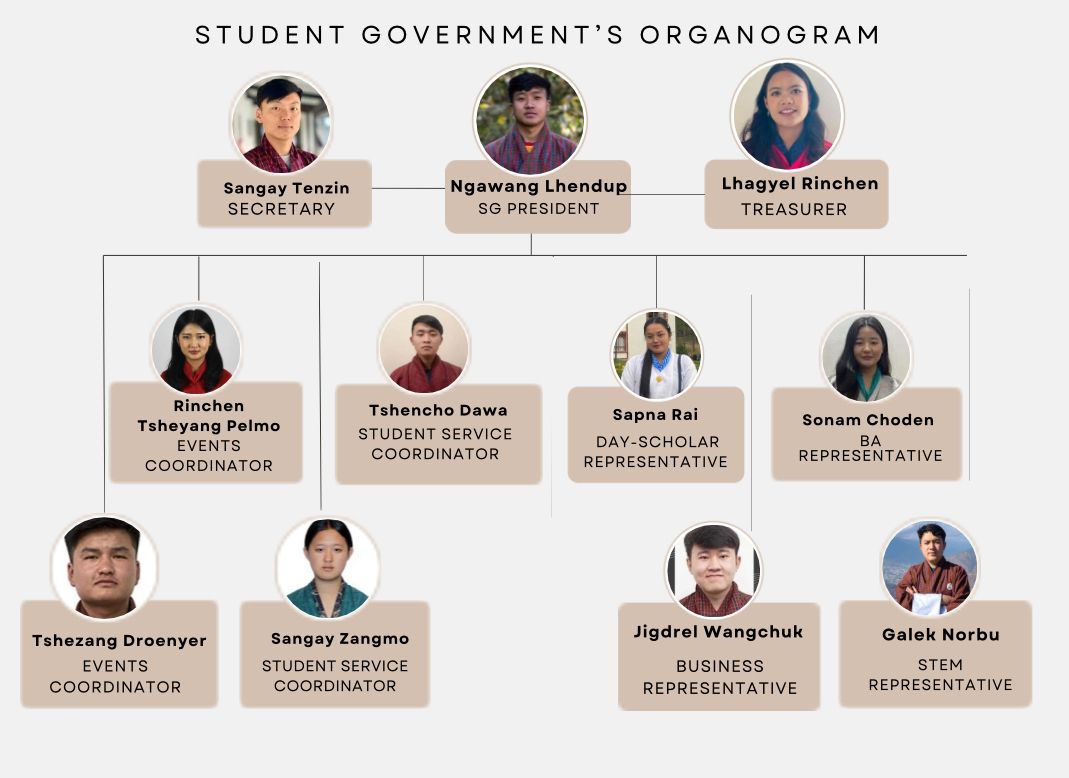
*Click here to view the present student leaders list
Click here to view the Student Government ConstitutionStudent Government Constitution
Residence Halls:
| Name | Focal Person | Ext. no | Contact | |
|---|---|---|---|---|
| Mr Tashi | Assistant Resident Manager | 163 | 17894357/351814 | tashimm@rtc.bt |
| Ms Kinzang Tshomo | Resident Mentor | 137 | 77352741/351813 | kinzangtshomo@rtc.bt / kinzangtshomo90@education.gov.bt |
Library:
| Name | Designation | Ext. No | Contact Number | Timings |
|---|---|---|---|---|
| Ms Thinley Choden Library | Library Manager | 128 | 17714015 | Mon-Friday 8:30 AM- 9:00 PM |
| Ms Tshetrim Zangmo | Assistant Librarian | 128 | 17370046 | Sat 8:30 AM-5:00PM |
Dining Services:
| Regular days | Timings | Holidays/Weekends |
|---|---|---|
| Breakfast | 7AM- 9:30AM | 7:30AM-9AM |
| Lunch | 12:00 PM-2PM | 12:00 PM-2PM |
| Dinner | 7:30PM-9PM | 7:30PM - 9PM |
Wet Canteen & Dry Canteen:
Open throughout the week from 7 AM to 8 30 PM
Bookstore:
A book store including copying and printing facilities and a mini-mart is provided for students’ convenience.
| Weekdays | 8:00 AM- 9:00 PM |
| 8:00 AM- 9:00 PM | 8:30 AM - 12 Noon |
| Sunday | 5:00 PM - 9:00 PM |
ATM:
Located in Academic Block B, the campus ATM provides convenient banking access for students, faculty, and staff.
Sports & Recreation Facilities:
RTC encourages a healthy and active lifestyle, offering facilities such as:
- Basketball
- Football
- Volleyball
- Badminton
- Table Tennis
- Gym Facilities Refer: Gym Timings
- Futsal Court
- Pickleball Court
- Archery Ground
- Teqball
- Khuru Bachu
RTC Artificial Turf Booking Form
Campus Security:
| Mr Dal Bir Waiba | Security Supervisor | 165 | 17954072 | dalbwaiba@rtc.bt / dalbir.jss@gmail.com |
Transportation:
City buses are available between RTC and Thimphu, and day scholars can obtain long-term bus passes through the RTC Administrative Office.
| Mr.Dawa Drakpa | Asst. Admin Manager | 108 | 77214515 | dawadrakpa@rtc.bt / dawa.drakpa1988@gmail.com |
RTC TRANSPORTATION SCHEDULE FOR FALL SEMESTER 2024
- Parking
Students can park their vehicles at the designated parking outside the RTC gate. - Lost & Found
Found items should be turned into the mentor's office where students can also inquire about lost belongings. - Suggestion Boxes
RTC values feedback and encourages students to use the suggestion boxes placed at strategic locations to share ideas for continuous improvement. The suggestion boxes are located at the front desk and in the AAD block.
RTC General Student Code of Conduct
RTC seeks to promote a core set of values including integrity, dedication to excellence, individual responsibility, as well as respect for oneself, for others, even if they come from very different backgrounds, and for the college infrastructure and natural environment. Consistent with its emphasis on respect for all, the college is also determined to foster safety and security for all members of its community and for their property. The codes of conduct developed for students and for staff are intended to embody these and closely related values, as are college procedures and practices.
The codes of student conduct pertaining to core areas of student life and related rules and procedures appear next. They should be reviewed carefully, because students are fully responsible for knowing and observing them and disciplinary action may follow breach of these codes. (See section 23, page 25 and following.) Because these codes of conduct and procedures reflect the college’s core values and they are designed to further the attainment of the college’s goals, students may be subject to disciplinary action, including but not limited to suspension and expulsion from the residence halls or from the college itself on short notice, for failure to observe them.
Because RTC as an institution constantly strives to improve its operation and to meet its goals ever more fully, it will review the materials appearing on the following pages as needed. Any changes made shall apply to all RTC students, who will be promptly and fully informed of them.
Although there are some specific codes of conduct pertaining to specific areas of life at RTC, there are also some general behavioral guidelines stemming from RTC core values that apply to students whatever they happen to be doing at the moment. As is apparent, the following code flows quite directly from concerns about core values, most especially respect for others and their property and for the safety and welfare of members of the RTC community.
20.1 Students shall behave with courtesy and show respect for everyone both inside and outside the campus, including all college staff and service workers as well as all other students. Thus they will not, for example, a) engage in any form of ragging, b) form groups intended or likely to promote disparagement or antagonism between those from different backgrounds or between members of different classes or other groups at RTC or c) harass others based on factors such as the other’s gender, their religious or regional backgrounds, or their year of enrollment at RTC.
20.2 Students shall carry valid identity cards issued to them by RTC at all times on campus and produce them when requested to do so by college staff, including security staff. Security guards at the gate will not allow students entry to the campus after 11pm without their ID cards and/or an Exit Information Slip.
20.3 Students’ may not bring visitors with or without vehicles on campus after 6.30pm and they are responsible for seeing that their visitors already on campus, as well as their visitors’ vehicles, leave by that time.
20.4 Students must accompany their visitors on campus at all times and will be liable for sanction in event of their guests’ misbehavior.
20.5 No unauthorized/unregistered vehicles are permitted on campus after 6.30pm.
20.6 Residential students are not permitted to drive vehicles around, into or out of the campus after 11pm. Violation of this rule may lead to loss of the privilege of bringing a car on campus. Day Scholars and CE students are expected to remove their vehicles from campus when they leave at or before the times applicable to them.
20.7 Students shall use RTC property in a manner intended to further their own and others’ academic excellence. For example, computer resources will not be diverted for purposes of entertainment when they are needed for academic pursuits and library rules will be followed to ensure that all members of the RTC community have access to the library resources they need.
20.8 Students are responsible for behaving in a way that promotes the preservation of their own and RTC property and that respects the rights of others to their own property.
20.9 Students are responsible for preserving RTC’s natural environment through behaviors such as avoiding littering. For this reason, the consumption of doma is strongly discouraged.
20.10 All Bhutanese students shall wear national dress when in the academic area of campus during class hours and at formal RTC events. In other areas, or at other times, they should dress modestly while in public and in the community areas of the residence halls.
20.11 Students are responsible for behaving in a way conducive to their own health and safety as well as in a manner that takes into consideration the health, safety and welfare of other members of the RTC community. Such considerations lead to the following rules and to the RTC Alcohol and Drug Policy below that apply to all students:
a. Gambling is not permitted on campus.
b. Firearms and weapons of any sort, including knives large enough to serve as weapons, are not allowed on campus.
c. Physical assault of any kind on anyone is a serious breach of the RTC code of student conduct, as is behavior intended to inflict harm to individuals’ emotional well-being or their reputation.
d. Students bringing vehicles to campus must operate them responsibly, with the safety of themselves and others always very much in mind.
e. Fireworks and firecrackers may not be used on campus
Tobacco Policy
Consistent with Bhutanese law, smoking is not allowed anywhere on the RTC campus, including all college buildings (the canteens, the dining hall, student lounges and residence halls, including common rooms, individual rooms or corridors, etc.). Students may be sanctioned by RTC for violation of this policy. They are also subject to sanction by civil authorities for unlawful smoking behaviors, as for other unlawful behaviors. Students who smoke are encouraged to see the Student Counselor to gain assistance with quitting.
Alcohol and Drug Policy
WARNING: STUDENTS SHOULD BE AWARE THAT RTC TAKES VIOLATIONS OF ITS ALCOHOL AND DRUG POLICIES VERY SERIOUSLY BECAUSE OF THE DANGER SUCH VIOLATIONS POSE TO BOTH THE INDIVIDUAL AND OTHERS. THUS, SANCTIONS INCLUDING EXPLUSION FROM THE SCHOOL, IMMEDIATE EXPLUSION FROM THE RESIDENCE HALLS, AND LOSS OF ELIGIBILITY FOR RESIDENCE HALL ACCOMODATION IN THE FUTURE MAY WELL FOLLOW EVEN A FIRST OFFENSE OF THIS KIND.
22.1 Possession or consumption of alcohol by students anywhere on campus, including the residence halls, is strictly prohibited.
22.2 Possession or consumption of psychotropic substances and drugs (except for those prescribed by a physician for a medical condition) anywhere on campus, including the residence halls, is strictly prohibited.
22.3 Students are not permitted on the campus while intoxicated or under the influence of other psychotropic substances or drugs not prescribed by a doctor for a medical condition.
NOTE: Students are encouraged to seek assistance if they require support in dealing with an alcohol or drug problem or if they wish to stop smoking. Confidential help is available from the Student Counselor and other sources of assistance to which students can be referred if needed.
Disciplinary Procedures for Violation of RTC Codes of Student Conduct
Students are subject to disciplinary action on the basis of violation of the RTC codes of student conduct on campus, at RTC-sponsored events, or at any other location or time when the conduct (1) has an adverse impact on the reputation of the RTC, (2) negatively affects, or could affect in the future, the safety or welfare of RTC’s students, employees, property or overall society, or (3) interferes with or obstructs the mission or operations of RTC and/or grossly violates RTC’s core values. Thus, offenses for which sanctions may be given are not limited to on-campus behaviors, but include breaches of the law and/or serious misbehavior off campus.
Sanctions for violations shall depend on the offense. A list of possible sanctions appears shortly, but it is not exhaustive as flexibility in suiting the sanction to the offense best serves the interests of the college and its students. For example, in some cases, required community service might be more appropriate than the sanctions listed below. In addition, sometimes a combination of sanctions may be applied. In deciding on such sanctions, college authorities may take a student’s prior inappropriate behavior into account, whether or not it resulted in official sanctions and whether or not the official duration of any prior official sanction is over.
To help ensure a safe and orderly environment, the RA’s and the Resident Mentors will carry out ad-hoc patrolling of the college campus at least twice a week. Students caught violating the RTC codes of conduct will be liable to be sanctioned without any warning and the college community may be notified about such sanctions. In addition, all members of the RTC community, including security personnel, other college staff, and students have the right to lodge a complaint regarding students’ behavior with the Registrar.
Financial Recompense: Students found guilty of any advertent damage to RTC property will be required to pay a reasonable indemnity in order to continue their enrollment at the college. Additional penalties such as suspension may also be imposed. Failure to pay such an indemnity could lead to RTC’s refusal to allow a student to continue his/her enrollment or to provide a certificate of attendance and/or graduation.
Reduction in Marks: Students found guilty of academic offenses shall be subject to a reduction in marks, including a zero for the assignment or even failure of the entire module in egregious cases. As with the other sanctions listed here, a reduction in marks will not preclude additional sanctions, including the requirement to redo the assignment or another more major one in its place, probation, suspension or even expulsion.
Limited Probation: A student can be placed on limited probation for disregard of a particular behavioral guideline or substantial violation of RTC’s core values. Being put on limited probation means that repetition of a similar offense will lead to more severe sanctions. For example, a student placed on limited probation for “disorderly conduct” could be placed on general probation, suspended, or even expelled if that offense is committed again.
General Probation: A student can be placed on general probation for marked disregard of college behavioral guidelines, gross violation of RTC’s core values, disregard of conditions set out as a result of prior disciplinary problems, repetition of offenses normally leading to limited probation, or the like. General probation may be given when the offense is quite serious or when a pattern of repeated disregard of a given rule or disregard of more than one rule, procedure or behavioral guideline exists, whether in a particular instance or over a period of time. Having been put on general probation means that the student may be suspended or expelled if their subsequent behavior does not comport with the standards expected of RTC students, even if the second breach of discipline is relatively minor.
Suspension: A student can be suspended, that is removed from RTC, for a defined period of time such as a week, a semester, or even an academic year, for inappropriate behavior. (Classes missed due to suspension will be counted as absences in computing eligibility to take semester–end exams). Specifically, students can be suspended when the offense is quite serious and/or the Director or Disciplinary Committee feels that the productive functioning of the RTC community or its safety is best served by the student’s absence. Prior disciplinary infractions may be considered in decisions about suspension for a given offence. Suspended students shall be permitted to apply for readmission after the determined period and may be required to fulfill specific conditions before readmission. Residence hall, dining hall, and tuition fees already paid by suspended students at the time of their suspension will be forfeit and no reimbursement of them will be made. Any fees owed to the college at the time of the suspension must be paid in order for readmission to be considered, but payment of such fees does not guarantee admission.
Expulsion from the College: Expulsion, permanent removal from RTC, will be reserved for offenses warranting the maximum punishment due to their severity or the danger the offense poses to the RTC or broader community In addition to disciplinary expulsion from the RTC, expulsion may occur for academic reasons if required academic standards are not met. Residence hall, dining hall, tuition and other fees already paid by expelled students at the time of their expulsion will be forfeit. Residence hall, dining hall, tuition and other fees owed by expelled students at the time of their expulsion must be paid. RTC will not issue any certificates of attendance, graduation or the like if bills remain unpaid. Students who have been expelled for any reason will not be considered for readmission to RTC.
Expulsion from College Housing and/or Loss of Opportunity for Future College Housing: Generally for minor offenses students may be given a warning by the Residence Mentor before more serious action is taken. However, students violating the Residence Hall Code of Conduct or engaging in other behaviors that seriously conflict with those expected from RTC students may be required to vacate their seats in the residence halls immediately and/or to forfeit the opportunity to be considered for a residence hall placement in the following semesters without a warning.
Parental Notification of Disciplinary Issues:The parents/guardians of students engaging in behavior that violates RTC values and codes of conduct seriously enough to lead to formal sanctions will be notified of the situation by the college. In addition, RTC may notify parents/guardians of behavioral issues if it feels it is in the student’s best interest to do so or if verbal warnings do not eliminate behavioral problems.
Broader Notification of Disciplinary Issues: RTC reserves the right to notify the college community, students’ parents, and the broader public of behavior that violates RTC values and codes of conduct seriously enough to lead to formal sanctions should the Director deem such notification to be in the best interests of the college.
Additional Requirements May Be Set for Students As a Result of Disciplinary Action: Students receiving sanctions may be required to fulfill various behavioural requirements beyond refraining from additional offenses, with the possibility of more severe sanctions if they do not. For example, a student on limited probation for smoking in his residence hall might be required to turn into the Registrar an essay on the negative health consequences of second-hand smoke, as well as to refrain from subsequent smoking on campus in order to have that limited probation expire at the end of the semester. A student not fulfilling any such requirements may receive a more severe sanction
Disciplinary Decision-Making Process: Faculty members have the power to decide on sanctions for first-time academic honesty violations of a relatively minor nature, although ALL academic honest offenses shall be reported to the Dean. In the case of repeated or more serious academic offenses, the Dean normally has responsibility for deciding on sanctions up to and including general probation, although he may choose to convene a Disciplinary Committee to decide on a sanction in relatively serious cases. The Registrar normally has responsibility for deciding on sanctions for non-academic behavioral offenses. However, when an offense is serious enough to require immediate attention in order to secure order and safety on campus and to uphold fundamental aspects of RTC’s Codes of Conduct, the Director may take immediate action up to and including expulsion of the offending student from the college. In cases that the Dean or the Registrar believes it should result in suspension or expulsion, a Disciplinary Committee will automatically be convened. If the committee agrees that suspension or expulsion is appropriate, it will forward this recommendation to the Director for a final decision. In all other cases they address, the Disciplinary Committee’s decision regarding the appropriate sanction or sanctions is final.
Should students wish to appeal a sanction imposed by the Dean or the Registrar, they may request a hearing from a Disciplinary Committee. This committee will then decide on the sanction to be applied, which may be more or less severe than the original one.
In line with RTC’s commitment to respect all members of the community, Disciplinary Committees shall include one or more student members, except in unusual cases where the Director determines that this would not be in the best interests of the RTC community or individuals within it. In addition, individuals charged with infractions shall be able to present their perspectives on the charge to the committee directly if they wish.


